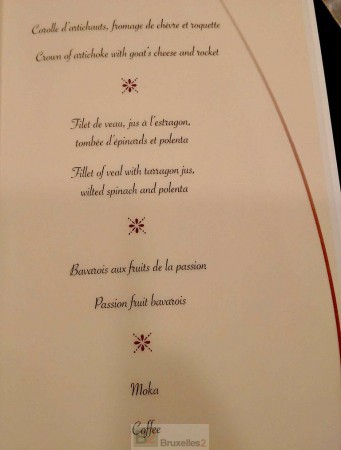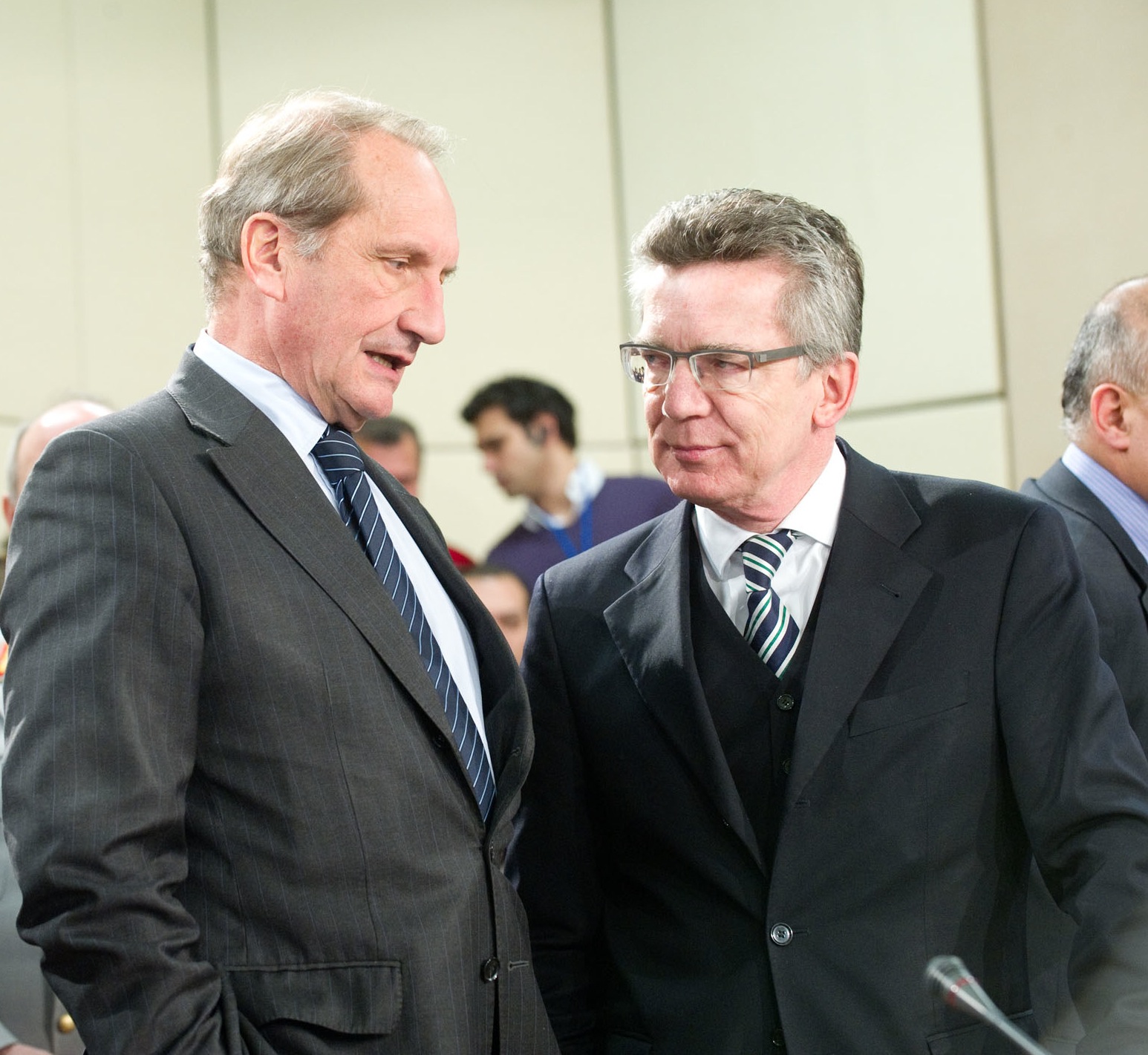A bavarois with passion fruit
 (B2) Europeans love to discuss nonsense issues, spend long hours bickering over dark issues that won't matter the next day. Playing for more than 24 hours a kind of psychodrama with overplayed accents: it's difficult, it's hard, we don't know if we'll get there... to end with a fishtail ending where we don't really understand why, in fact, it lasted so long. Ordinarily, that would make me laugh. I would be passionate about such a political game. Not today !
(B2) Europeans love to discuss nonsense issues, spend long hours bickering over dark issues that won't matter the next day. Playing for more than 24 hours a kind of psychodrama with overplayed accents: it's difficult, it's hard, we don't know if we'll get there... to end with a fishtail ending where we don't really understand why, in fact, it lasted so long. Ordinarily, that would make me laugh. I would be passionate about such a political game. Not today !
The British crisis: a crisis of egos
Unlike the previous 'problems' created by a 'No' to the ratification of a Treaty (Denmark, Ireland, France, the Netherlands...), this Brexit crisis is a totally artificial crisis. It does not aim to solve a given problem. It does not aim to obtain certain advances in exchange for certain concessions: which has always been the objective of European 'discussions': I will exchange my coal for your steel, your agriculture for my industry, my financial services for your knowledge. -do technological, etc. Nor does it aim to have the people confirm a European treaty which provides for new powers. It aims, in fact, only to satisfy the small ego of a Prime Minister David Cameron, who intends to perfect his power in his Kingdom and within his party, and to help him get out of a trap that he himself has strained himself... It also only aims to give the illusion to the British that they still weigh heavily on the European scene, and to Europeans that they are the center of the world. A crisis of small egos in a way.
Falsely existential questions?
Should we affirm the principle of a union that is a little close, very close or not at all? Once this principle was defined, could the United Kingdom be excepted? In which document should this pas de deux be recorded? What happened in the event of a British No etc. (1) When we look carefully at the document that came out of the conclusions of the summit, we can only be struck by the inanity of the document produced by the 28 after 24 hours of discussion. When it comes to examining the difference between what went in and what went out, it's better not to, it's very little in the end. " It is not because a summit is long that it discusses interesting things summed up after the François Hollande meeting. Effectively...
An indescribable waste of time
Bringing together 28 Heads of State and Government, more than 24 hours, to discuss a non-issue, with solutions that will no more convince the British to stay in the European Union than convince Master Raven to stay perched on his branch for not going to eat his cheese, is rather formidable and testifies to an absolute blindness (2). Personally it makes me angry. Because there are far more substantial problems to solve which have never really mobilized the Europeans so far.
Syria...
Never, the Europeans have discussed in recent years, 24 hours, Syria for example. A violent internal conflict, coupled with a conflict by proxy which can get out of hand at any time, between several powers with exacerbated nationalism (Arab, Turkish, Russian, Persian etc...). The most serious conflict of the moment for the existence of the European Union: its values, its security, its place in the world... The Europeans are trailing the Americans and the Russians on this subject.
Libya...
The Europeans have never discussed Libya for 24 hours: what can be done to bring this country to its senses? How to silence the rivalries of foreign powers who, here again, seek to take advantage of the instability to protect their interests? What if the 'Islamic State' nucleus grows in Sirte?
The border crisis...
Europeans have never discussed for 24 hours the best way to protect their borders, to plan temporary (or permanent) protection measures, to put in place a possible reaction in common (3). And on these issues, there was no need to have a Turkish Prime Minister at the table to know how to solve them. Of course, there are still divisions between Europeans on the necessary solidarity (relocation and resettlement). But it was an opportunity to try to iron out the differences, to set up a plan B if the borders close in Austria and Slovenia: what to do with the tens of thousands of people who will find themselves stuck between Greece and Slovenia ? How to help Croatia, Bosnia, Serbia, Macedonia / Fyrom? Isn't there a way to have a European response instead of the NATO intervention in the Aegean Sea?
Notable convergences despite everything
The European Commission proposed in December, more than two months ago, an ambitious plan for a European Border and Coast Guard. Wasn't it a good time to accelerate the movement ... rather than conclude that it was necessary "to accelerate the movement" ? All European leaders agree to strengthen border control, find a European solution if possible, and even set up this European corps of border guards. It's rare enough to be stressed. This was not the case six months ago. This rare momentum, we could have taken the opportunity to very quickly endorse all the technical details still to be settled. They are numerous. But we could develop another working method. A 'rush' method...rather than a 'lento piano tardissimo' method.
Find a faster way to work
Why not have all levels of decision-making working in parallel: technicians on one side, interior ministers on the other, even finance ministers, heads of state and government, at the third level. With the European Parliament meeting in extraordinary session on the other.

With a bit of audacity and innovation (as lawyers have found to solve Brexit), it was possible to settle this question quickly. Which would have been an asset in the sleeve of Europeans as a new wave of migrants and refugees is looming in favor of spring...
NB: I found the menu for the summit dinner which provided for dessert a " Passion fruit Bavarian “, a title all in irony. Because, at this summit, if there was gelatin, a little sticky, it lacked fruit and... passion.
(Nicolas Gros-Verheyde)
(1) This reminds me of the whole constitutional debate about whether there should be a majority threshold of 62%, 65% or 67%? Or how long could the Ioannina compromise be implemented? Provisions never really used because they do not correspond to the reality of the political issues...
(2) We know very well that a referendum is not made to answer the questions asked. However, the answers found by the Europeans seem to me very refined, too even to be able to really weigh their weight in the referendum, especially if a part of the popular press and the Tories gets involved.
(3) There were long discussions, but we talked more about the relocation program, not about common border management and protection.
(photo credit: the pot to me Alice)


